Jarrod Bennett is Leading Atlas Into a Bright Artistic Future
Jarrod Bennett, the new Executive Director of Atlas, wants to inspire the community with a dazzling array of arts.

“There’s been a long history between the Atlas and GMCW,” says Jarrod Bennett. Indeed, the Atlas Performing Arts Center has repeatedly served as a host venue for the Gay Men’s Chorus of Washington, the H Street institution proving to be an ideal venue for the chorus’ intimate cabaret shows. The Atlas also partners with GMCW to co-host the free monthly “Sing Out: A Piano Bar and Open Mic.” Says Bennett, “We provide the music, microphones, and pianists.”
Bennett has been a singer with the chorus, often featured as a soloist in the group’s various cabarets for 15 years. For nearly a decade, he’s also served as GMCW’s technical director. And in 2022, he took a job at the Atlas.
“Being a singing member of the chorus as well as being here at the Atlas just strengthens that relationship even further,” says the 43-year-old who, last September, became the art center’s new Executive Director after Doug Yeuell retired from the post after a decade.
Bennett transitioned into the new role with relative ease, aided by his status as a colleague among the Atlas staff, some 65 people in total. Yeuell also worked to make for a smooth transition and worked with Bennett last summer to help plan the 16th edition of Atlas Intersections, the annual multi-genre festival that kicks off next weekend.
“We received over 90 applications for this year’s Intersections,” says Bennett. “We can only put up about a third of those shows.” Spread out over a very packed and busy five weeks, this year’s festival will make the Atlas a buzzy place with a schedule of 35 shows, each presented just once.
“They range from dance and music to poetry and storytelling,” Bennett says. “You name it, it’s happening. It brings in a very diverse, strong base of folks into the building because we’re not specializing in one thing. We’re trying to reach out to all areas of art.”
Bennett says that “somewhere between 500 and 600 artists” will perform over the course of the five weekends and expects about 3,000 people to attend the festival. “It’s a big, big festival,” he laughs.
As always at Intersections, and the Atlas in general, queer artists are well represented in the lineup, with several shows exploring themes or topics with inherent LGBTQ appeal.
The broad and appealing mix of programming at the Atlas is intentional, Bennett says, and not just a byproduct of the fact that for much of its nearly two decades in operation, the Atlas has been led by a member of the LGBTQ community.
“Programming is extremely diverse, and I’m very proud of the diversity that we have amongst our entire staff,” Bennett says. “It provides a great work environment, lots of perspectives from straight folks, gay folks, trans folks, you name it, Black, White, Asian. We try to be as representative of every community that comes through our doors as possible. Whether it be through programming or staffing, we want to represent the community that we are in. It’s very important that we continue to program fully so that everyone is seen.”

METRO WEEKLY: You rose through the ranks to become the executive director of the Atlas. How did you first connect with the Atlas?
JARROD BENNETT: My introduction to Atlas came through the Gay Men’s Chorus. One of the first cabarets I did with them was part of Intersections. So I was introduced to Atlas as a performer and was blown away by the venue itself, the staff, and the fact that this gem existed on H Street. I kept an eye on it for a couple of years. I saw a job posting go up for Director of Operations. I applied for it and joined The Atlas three years ago as the director of operations. I rolled into the executive director role in September.
MW: I understand that Thea Kano, GMCW’s artistic director, was instrumental in the simple act of you throwing your hat into the ring for the executive director job.
BENNETT: In all honesty, Thea was a driving force for me applying for the job. Aside from being a great friend personally, and a great human in general, she’s a great inspirer and a great motivator. When I told her about this job, she said, “This is what you need to be doing.”
MW: Five months in, how’s it going so far?
BENNETT: I really love it here. I jokingly say I think I found my forever job, so long as the board will have me. The mission, the people, the community — for me, it is the perfect fit of what I want to do with my life and how I want to impact the community and the environment. I think this is where I can do that most effectively.
MW: It’s all a far cry from how and where you grew up. Give us a sense of your childhood as the son of an active-duty Marine father.
BENNETT: I grew up in a military family. I spent most of my life growing up in Okinawa, Japan, and Hawaii. Because of my dad’s job, we moved around. But we spent longer periods of time than most military tours. We were in Japan for nine years, and those tours were split in half by a trip to Hawaii.
Okinawa is the place I remember the most, and it’s the one place where I lived the longest. I still have friends from high school there. I have a lot of friends that are still active duty over there.
MW: Was your family musically-oriented?
BENNETT: I am the only musical person in the family — I have three sisters, I am the oldest — and every time my parents are asked about it, my dad jokes, “Jarrod gets it from me. I played clarinet for two weeks in middle school.”
I was actively involved in music theater from elementary school. I remember being in a school play at Bob Hope Elementary School where I played Frankenstein and had to tap dance. For a long time, I thought I was going to be a fireman or an EMT. As I got into high school, I was like, “You know what? Maybe I want to be a musician.”
So ultimately that’s what I went to college for. I went to the University of Southern Maine School of Music for music education, and then I just began to focus on vocal performance. In college, I realized that what I really wanted to do was just help people. I felt like the arts were going to be that avenue.
Which is why I leaned so heavily into schooling and performing, because the arts do give you an opportunity to speak to people in a way that they may not listen to in a conversation. You could sing a song that has a message of strength and equality, but maybe if you had that same conversation with somebody, they wouldn’t listen because they wouldn’t hear it.
MW: When did you come out?
BENNETT: I came out in college, and it was rough — the family had a hard time with it. But believe it or not, it was a priest at my parents’ church that got them to realize that I was not any different than I had ever been. And that it was just their perception of me that had to change. Their vision of what I wanted to be was not what I was going to be. It was not what I had in mind for myself. And they just had to wrap their head around that.
I remember in high school there was a rumor that somebody had been kicked off the base because they were gay. I don’t know if it was actually true, but it really scared me. I knew I was gay in high school, but I was trying to suppress it, being in a very masculine environment. The Marine Corps is a very, very oorah, gung-ho environment — at least it was back then.
So it took me a second to come to terms with it. When I got into college and started seeing other folks and seeing people that were successful and living their life — just normal people — I started to realize that, “Hey, I think that’s me.” I had a great support system in Maine, a great group of friends who took me in, showed me the ropes, introduced me to people, took me to my first gay bar, Styxx nightclub. I will never forget that place.
MW: Your folks eventually came around?
BENNETT: It took a few months after my coming out. And from that point on, my parents and family have been the rock of my life. In fact, my parents continually try and set me up with people and say, “Oh, we got to find you a husband.” I’m just like, “Yeah, I don’t need my parents helping me date, but thanks.” My parents attend every show that I sing in. They’re passionate about supporting GMCW, and equal rights for everybody.
MW: You’ve now been with GMCW for 15 years. Does that make you one of the longest-serving members?
BENNETT: Well, we have original singing members still active in the chorus — people who have been in the chorus for over 40 years, as long as I’ve been alive. Which is amazing. It’s really inspiring to see somebody stick with an organization like that.
MW: Something tells me you fully intend to follow suit and stick with the chorus for the long haul, too.
BENNETT: I do. I’m continuing as the technical director and I’m currently in the cabaret for this year. I don’t see myself leaving the chorus. That’s my fun time, my life, my connection. I can’t see a life not being involved with the chorus in some way, shape, or form.
MW: What is it about the chorus that inspires such dedication?
BENNETT: Dr. Kano says all the time — “You never know who needs to hear you. It could be somebody who’s standing next to you singing. It could be somebody in the audience.”
I will never forget being on tour in Cuba with the chorus. I was a soloist in the show. And after the show, I had somebody walk up to me crying, just bawling — they were dark-skinned and gay. They said, “Here in Cuba, we don’t see people that look like us doing that on stage. And to see you up there being open and proud makes me believe that I can do this, too.” And it’s those moments that make me realize why it’s so important for GMCW and Atlas and other arts organizations to be out there sharing people’s stories. Because there’s somebody that needs to hear you.
I want to be out there sharing my story, and helping other people share their stories so that people can see their humanity and see how much alike they are. And so that’s why I keep coming back to GMCW, year after year. It’s a very important mission, and it just aligns with my personal mission as well.
MW: Is there any GMCW performance that sticks out to you as particularly meaningful?
BENNETT: I have two. About five years ago, after one of my sisters had passed away, I was singing a song by Hunter Hayes called “Invisible.” That was the first time that I was able to fully open up on stage emotionally while singing. I used to be very guarded and only present a very polished performance. I broke down crying while I was singing and realized that emotion was okay. That really stuck out to me. It’s kind of molded the way that I perform since that day.
One of my favorite performances of all time was during 2023’s Whitney. I was given the opportunity to work with the musicians in the band to come up with a very special version of “I Will Always Love You.” We took some inspiration from some other arrangers. It was a fun song to do in a totally different way, and got a great response. To this day, I still feel like it’s one of my best performances ever.
MW: Is that the song you wanted to sing in the show?
BENNETT: It is. The arrangement morphed from the time that I auditioned to the time that we hit the stage to really make it special because, let’s get real, nobody can sing like Whitney Houston. So we had to come up with something that was deliverable, had enough soul in it, and paid homage to that version as well as Dolly’s version. It was a big task, and I think we pulled it off.
MW: That same GMCW season kicked off with Judy, a cabaret focused on Judy Garland. When speaking with Thea about the show, she related the moment that she got to break the news to you that you were “the chosen one,” the one tapped to sing Garland’s signature “Over The Rainbow.”
BENNETT: I’m not going to lie — that was a year of a lot of stress for Jarrod because it was the Judy and Whitney shows that year, and getting two songs that those artists were known for was scary. The chorus has actually shown me who I am as an artist. I now know that I can sit in a song and really live in the way that I perform it.
The chorus opened my eyes up to the differences in performance, which really gives me a great perspective as we book Intersections or when we’re looking at Arts Lab participants, taking in everyone’s performance for what it is, and understanding that that is an art form, their way of expressing it, and it is valid. There’s no right or wrong way to do it.
GMCW really helped open my eyes to the fact that there are very different ways of doing all of this, and be open to experiencing all of it. So it’s really informed my ability to make selections and look at art and accept it and help promote it and champion it.
MW: What is your vision for the Atlas in the future? And how does it relate to what your predecessor, Doug Yeuell, accomplished in his decade at the helm?
BENNETT: Doug really set the Atlas up for success. He did amazing things for this organization that has solidified its ability to be a force in this community. Under Doug’s tenure, over the last 10 years, Arts Lab was formed. We’re in our third year now [of this] incubator-type program where we provide thousands of dollars worth of free rehearsal space for artists developing their works. And then, by the end of their fellowship with us, they are standing up some version of that, whether it be a reading, open workshop, or something along those lines. That was a brainchild of Doug’s.
I want to continue to push the Atlas forward. We are a community hub for art of all types. Story, movement, sound, you name it, we will put it up here. And I want to see arts education more prominent in what we do here at the Atlas. We’re actively working and engaging in partnerships with other organizations and schools — public schools and private schools and charter schools — to build educational programming to help supplement what is happening in the school systems.
I really believe that arts education is vital for our humanity and for the world. And if it falters, the world is only going to be a darker place. How can the Atlas be a place to provide a space for that education? That’s really what I want to focus on over the next couple of years: arts education and innovative programming to bring in new crowds that maybe didn’t think the arts were accessible and teach them about it.

MW: We’re in a rather dark era right now, one in which so much of the cultural fabric seems to be fraying all around us all at once, making it hard to know where to start with a fix, let alone have faith or hope about the future.
BENNETT: At the Atlas, we believe that these conversations need to be had, and people need to be able to communicate with each other and hear each other. I think that’s what’s lacking in this world — people are not talking to each other. Our mission is to be able to provide a space for artists to come and deal with the issues and topics of their time, and put that out on stage and have those conversations. Because art is an avenue for change. If more people just sat down and listened to each other, we would be much closer together and less divided.
The Atlas will continue to be that space where artists will be able to come and talk about the issues of their time, and hopefully other people will come and listen and take a new opinion, or a new way of looking at life, or specific topics, by just interacting with each other.
And Intersections is a great cross-section of these shows. We have everything from drag queens to aerialists, to folks talking about their lives growing up as people of color, to symphony orchestras doing visual interactions with their performances. I’m hoping that people will come and take something new away from it that maybe changes their perspective and opens their eyes to something that they maybe hadn’t thought about.
The Atlas Intersections Festival 2025 runs five weekends, beginning Saturday, Feb. 15, and concluding Sunday, March 16. Single ticket prices vary but are generally in the $25 range. Festival passes are available in a 3-show pack for $69 or a 5-show pack for $100. For a full schedule of events or to purchase tickets, visit www.atlasarts.org/intersections2025.
Atlas will hold its annual gala, “An Evening of Magic,” featuring Broadway stars Christine Dwyer and Rachel Potter, on Wednesday, April 23, at 6 p.m. Tickets range from $182.25 to $257.25. Sponsorships are available. For more information, visit www.atlasarts.org/atlasgala.
Support Metro Weekly’s Journalism
These are challenging times for news organizations. And yet it’s crucial we stay active and provide vital resources and information to both our local readers and the world. So won’t you please take a moment and consider supporting Metro Weekly with a membership? For as little as $5 a month, you can help ensure Metro Weekly magazine and MetroWeekly.com remain free, viable resources as we provide the best, most diverse, culturally-resonant LGBTQ coverage in both the D.C. region and around the world. Memberships come with exclusive perks and discounts, your own personal digital delivery of each week’s magazine (and an archive), access to our Member's Lounge when it launches this fall, and exclusive members-only items like Metro Weekly Membership Mugs and Tote Bags! Check out all our membership levels here and please join us today!




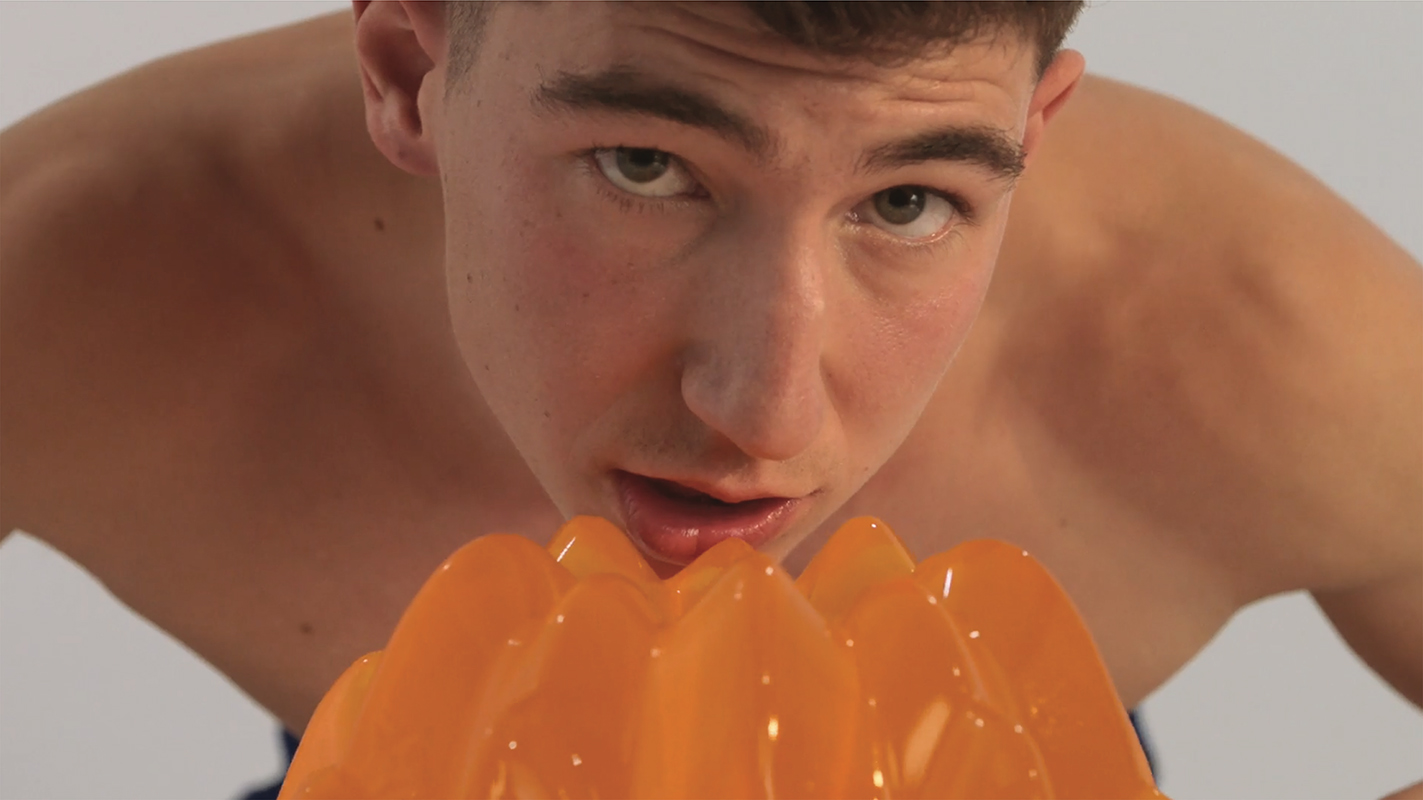
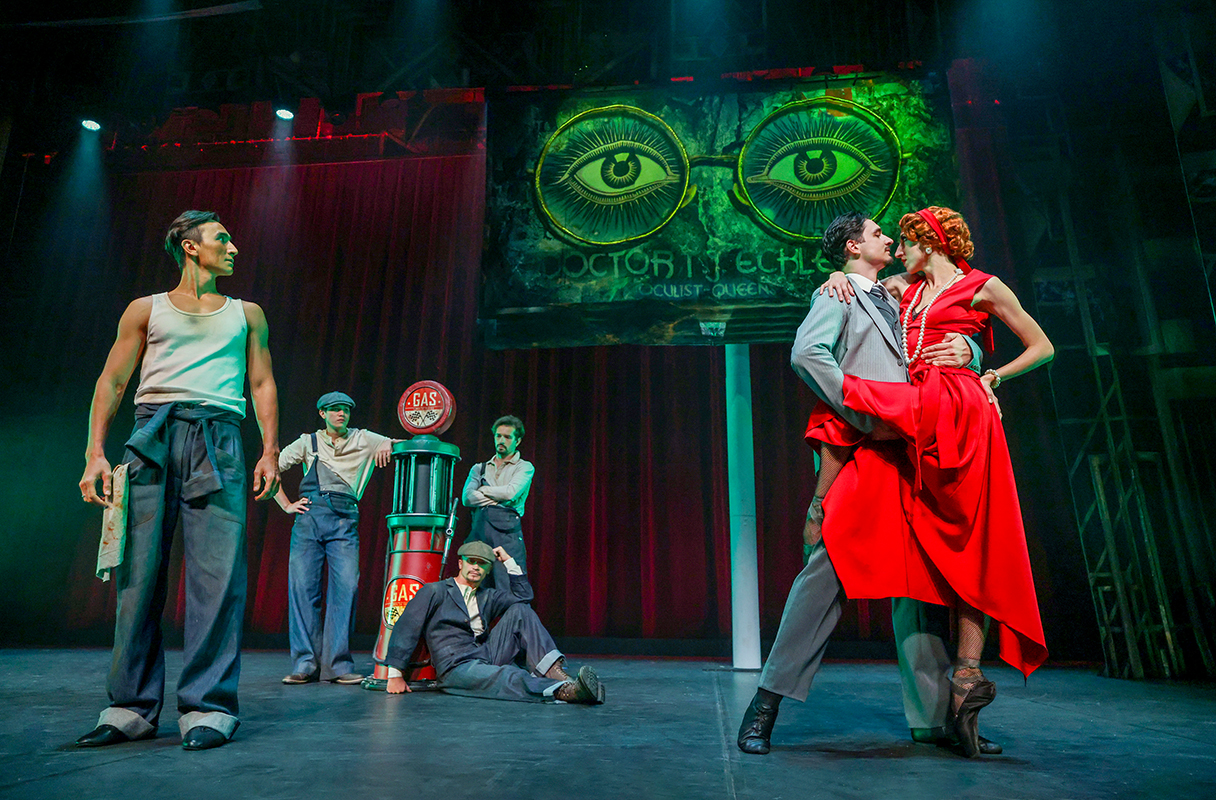
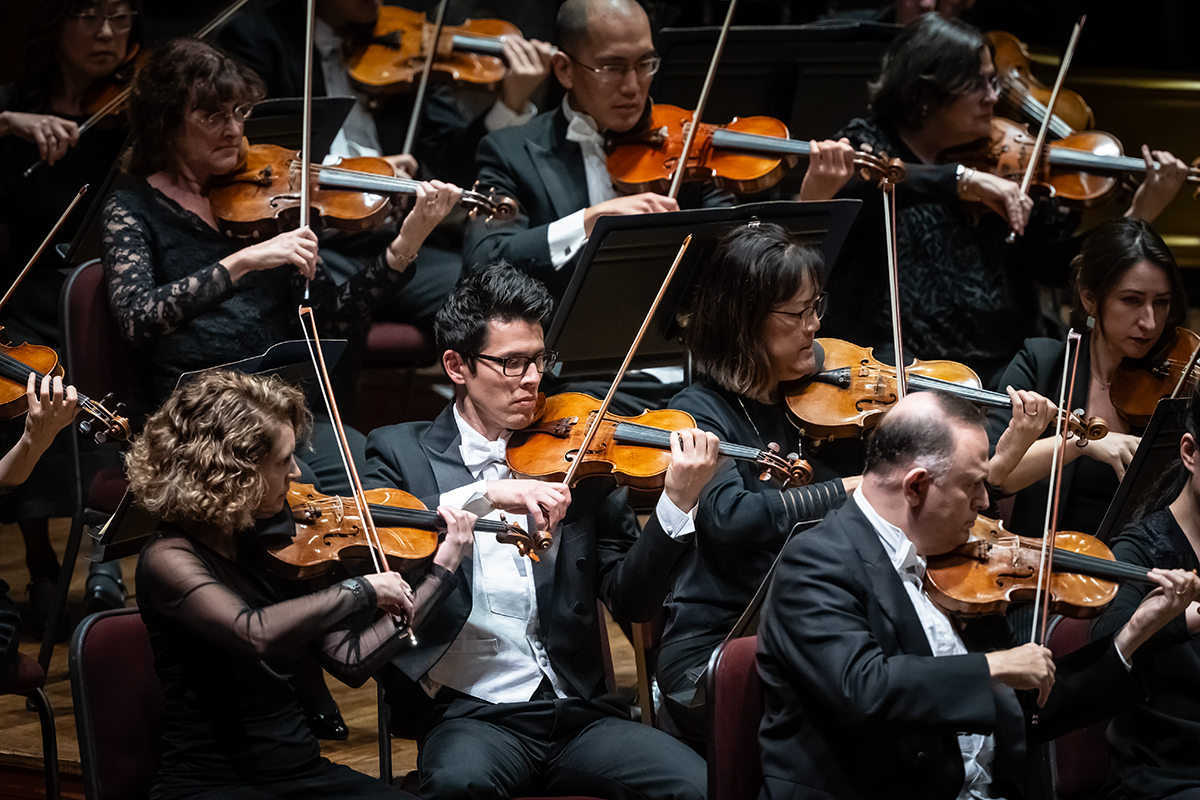














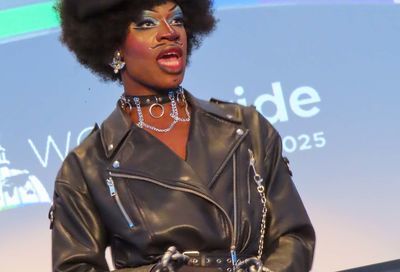
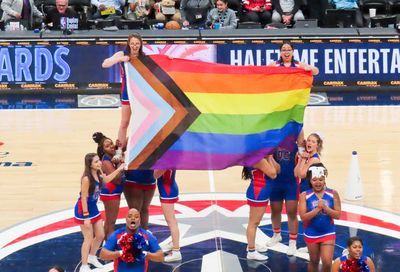
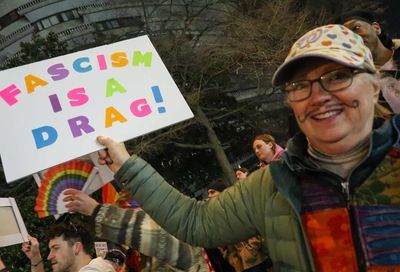
You must be logged in to post a comment.